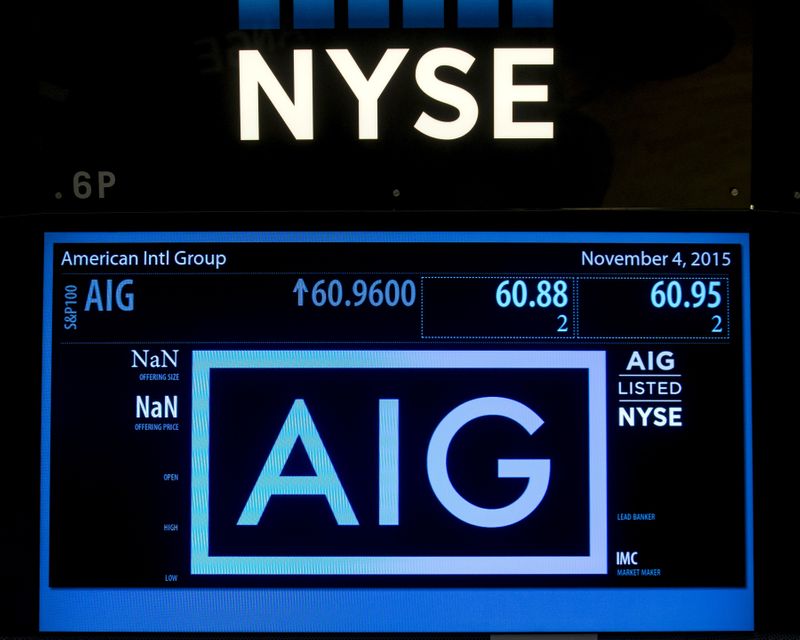NEW YORK (Reuters) – Insurers appear to have dodged a revival of strict regulations and policy upheavals after an anticipated Democratic “Blue Wave,” which would have allowed progressives to push for broad reforms, failed to materialize on Wednesday, said industry executives.
The U.S. presidential election result was on a knife-edge on Wednesday, with Republican President Donald Trump and Democratic challenger Joe Biden tightly knotted as officials in several states completed their vote counts. [nL1N2HQ0VQ] Congress looked set to remain divided with Democrats keeping the House of Representatives and Republicans on track to retain control of the Senate.
Multimedia U.S. election coverage: https://www.reuters.com/world/us-election2020
That bodes well for the insurance industry, which had feared a Democratic sweep would allow progressives to reprise regulations introduced after the 2008-2009 financial crisis and push a disruptive healthcare overhaul.
Health insurance stocks jumped on Wednesday, as fears of a dramatic change faded. The S&P 500 managed care index <.SPLRCHMO> rose 9.8% as investors and insurance trade groups cheered an expected Republican hold on the Senate. [nL1N2HQ2LA]
“The Senate traditionally has been a brake in our country on populist impulses, and populist impulses really can create a lot of volatility,” said Nat Wienecke, an executive at the American Property Casualty Insurance Association.
Among the industry’s top policy worries had been a major overhaul of the Affordable Care Act, but with the split in Congress, “it’s going to be very difficult to do substantial healthcare reform,” said James Sung, associate director of insurance ratings at S&P Global Ratings.
“We’re reading it as less risk for the industry,” he said.
Still, insurers face potential risk from social unrest should a contested election bring protesters into the streets.
“If you see another round of civil unrest as we saw in the third quarter and second quarter, we’re talking probably something that ends up in the billions of dollars of direct insured losses,” said Paul Newsome, insurance analyst at Piper Sandler in Chicago.
Policywise, the industry had also fretted that a Biden administration would reprise for life insurers the “systemically important” label created following the crisis for big financial companies whose failure threatens the economy.
It triggers strict federal oversight and was scrapped early on by Trump’s regulators, who argued it was not necessary after large U.S. insurers trimmed their assets.
“That just stopped under the Trump administration but that could be reversed on a moment’s notice,” said Howard Mills, former superintendent of New York’s insurance department and an industry consultant, but a Republican Senate is unlikely to confirm progressives to the agencies that assign the label.
Prudential Financial Inc <PRU.N> shed the label in 2018, the last insurer to do so. American International Group Inc <AIG.N>, which nearly failed during the financial crisis, shed the label in 2017 after selling businesses, while MetLife Inc <MET.N> cast off the designation in 2016 after winning a lawsuit.
Many life insurers were also concerned a Biden administration would revive the “fiduciary rule” adopted by the Obama administration’s Department of Labor in 2016 to curb conflicts of interest among providers of financial advice. The rule was struck down in 2018 by a federal appeals court, in a major victory for financial groups under Trump.
Life insurers fought the rule, partly due to checks it imposed on agents and additional scrutiny of some annuity products. Some progressives have argued it should be revived.
But on Tuesday, William Wheeler, president of Bermuda-based annuity provider Athene Holding Ltd <ATH.N>, said during an earnings call that he did not see that as a risk if Biden wins. He noted that moderate senior congressional Democrats, who analysts expect to hold more sway within the party under a divided Congress, did not appear to support such a move.
Insurers also hope to play a role in any infrastructure spending plan. After the crisis, life insurers purchased a third of the Build America Bonds issued to raise capital for infrastructure, according to the American Council of Life Insurers. The industry has “significant capital to deploy” for further infrastructure initiatives, said Mills, adding that a bill is likely to move forward regardless of who is president.
(Reporting by Alwyn Scott and Suzanne Barlyn in New York; Editing by Michelle Price and Matthew Lewis)














